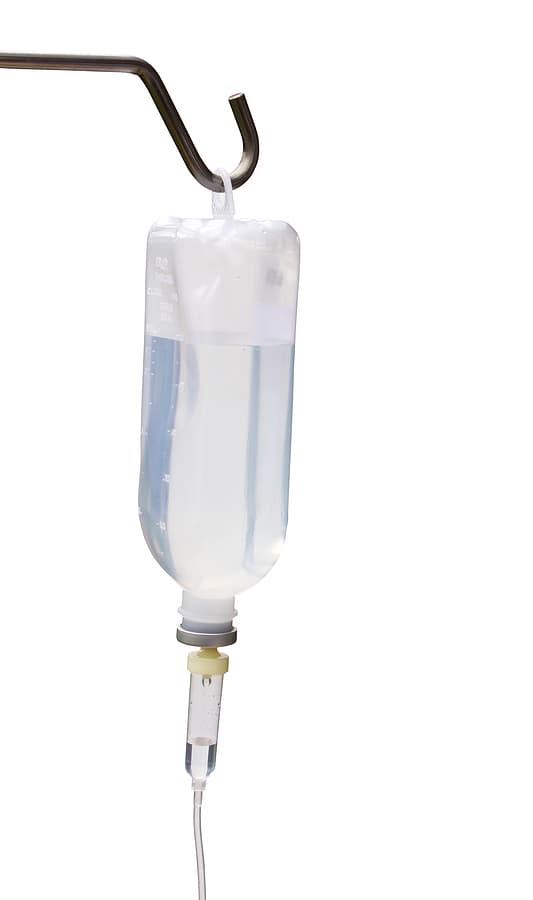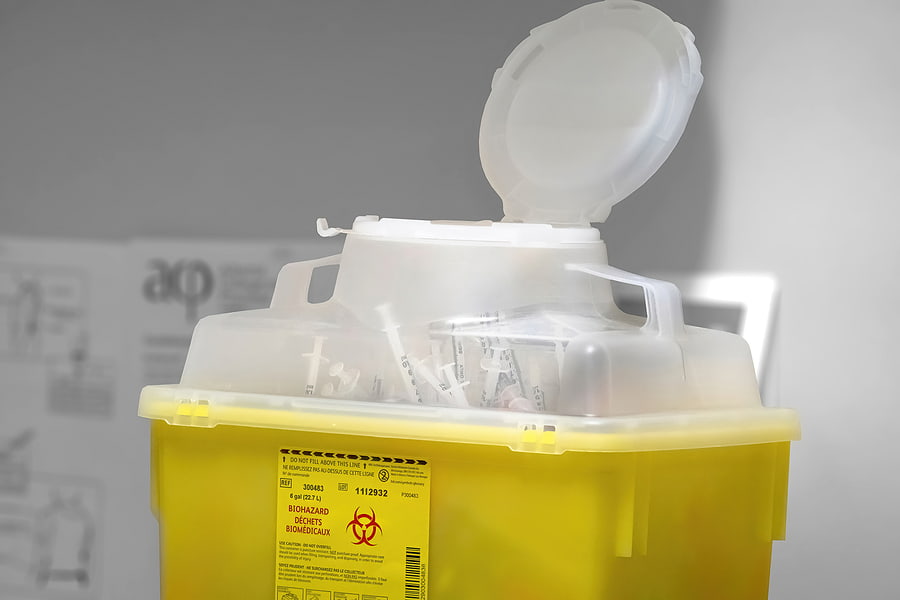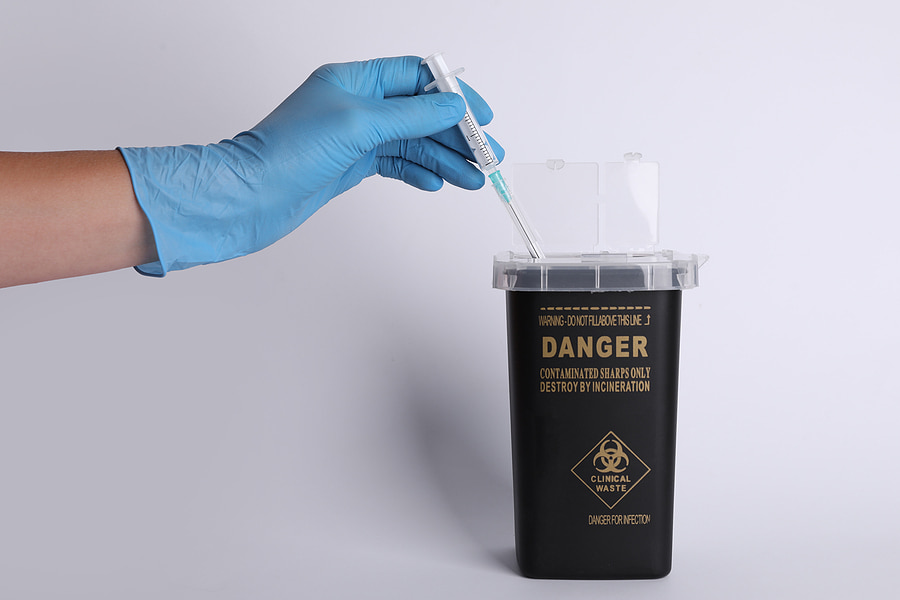Chemotherapy Waste Management

Chemotherapy remains a crucial and lifesaving treatment for millions of people around the world suffering from cancer. However, as anyone who’s administered or received chemotherapy knows, the drugs require the utmost care. If improperly handled, they can cause severe harm to both patients and providers. As a result, chemotherapy waste management must be treated seriously, and providers need to follow the state and federal regulations in place.
Types of Chemotherapy Waste

Chemotherapy involves a range of different treatments and drugs. The waste from these drugs breaks down into two broad categories, trace and bulk. The distinction between the two comes from the amount of chemotherapy drug an item comes in contact with, and/or its role in the administering of the drug.
Trace chemotherapy waste comprises equipment used in the chemotherapy process that contains some residue. This typically includes PPE, used IV bags and syringes, empty drug bottles, or empty containers. The determination of trace rather than bulk falls under RCRA. Under RCRA guidelines, the chemotherapy waste component of the equipment or container must be under 3% in volume or weight.
In contrast, bulk chemotherapy waste involves any items or containers over the 3% threshold. Containers that still contain drugs, soaked PPE, partially filled IV bags, or anything used to clean chemotherapy-related spills likely fall into this category.
Trace Chemotherapy Waste Disposal
Trace chemotherapy waste is the easiest of the group to dispose of. The industry standard for this type of waste is to place it into a yellow plastic container. If some of that waste includes sharps, a separate sharps chemotherapy container should be used. Once the containers fill up, a waste disposal company can pick them up, or you can send them to an approved incinerator.

If unsure about whether the waste is trace chemotherapy or normal waste, it’s best to err on the side of caution. Moreover, mishandling chemotherapy waste comes with liability concerns for your practice and health concerns for your employees.
Bulk Chemotherapy Waste Disposal
The process for bulk chemotherapy waste disposal breaks down in two ways. The first involves hazardous bulk waste. This waste, whether soaked PPE or half-empty IV bags, requires hazardous waste disposal. Across the industry, black rigid plastic containers are the standard, but the color is not a requirement.
However, this waste involves more stringent requirements in its disposal, including using a company certified in the disposal of hazardous waste. This involves EPA, state, and local certifications, although these differ by state and locale. Once the disposal company picks up the waste, they take it to a certified incinerator for hazardous waste.

Then, the second process is state-dependent, as some states allow non-hazardous bulk waste to be treated the same way as trace chemotherapy waste. For example, California and Kentucky allow this method of disposal for non-hazardous bulk waste. However, if your state doesn’t allow this method of disposal, you must treat all bulk waste through the hazardous waste method.
Common Chemotherapy Drugs That are Hazardous Waste
Chemotherapy drugs often meet the hazardous waste designation. If the drug used in treatment is a characteristic waste, listed waste, or both, any waste produced falls into the hazardous waste category.
A characteristic waste involves one or more of these hazards:
- Flammability
- Reactivity
- Corrosivity
- Toxicity
The 9 most common chemotherapy drugs that fall under the hazardous waste classification are:
- Arsenic Trioxide
- Chlorambucil
- Cyclophosphamide
- Daunomycin
- Diethylstilbestrol
- Melphalan
- Mitomycin C
- Streptozotocin
- Uracil Mustard
Anything that comes into contact with these drugs, or another drug classified as hazardous, requires hazardous waste disposal.
Make Your Chemotherapy Waste Management Simple with Medical Waste Pros
No matter what type of chemotherapy waste disposal service your practice needs, Medical Waste Pros can help. We partner with a network of licensed and trusted operators around the country who can make your waste disposal process simple. Give us a call at (888) 755-6370 or fill out the form on the page, and we’ll connect you with a provider near you within minutes.










